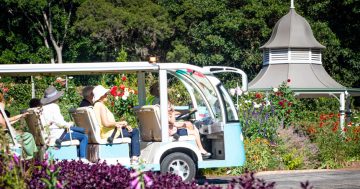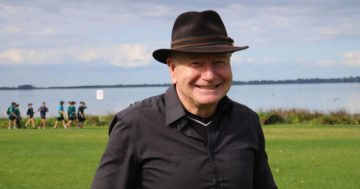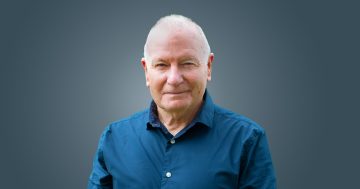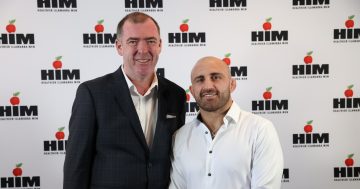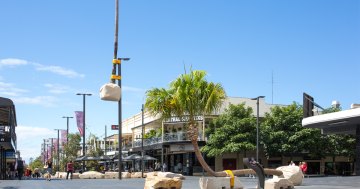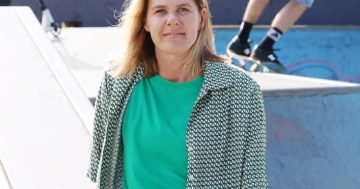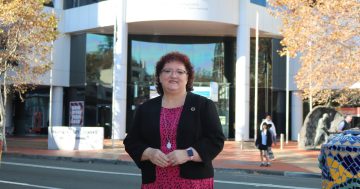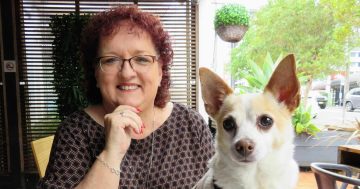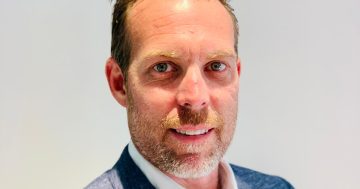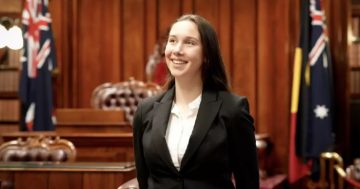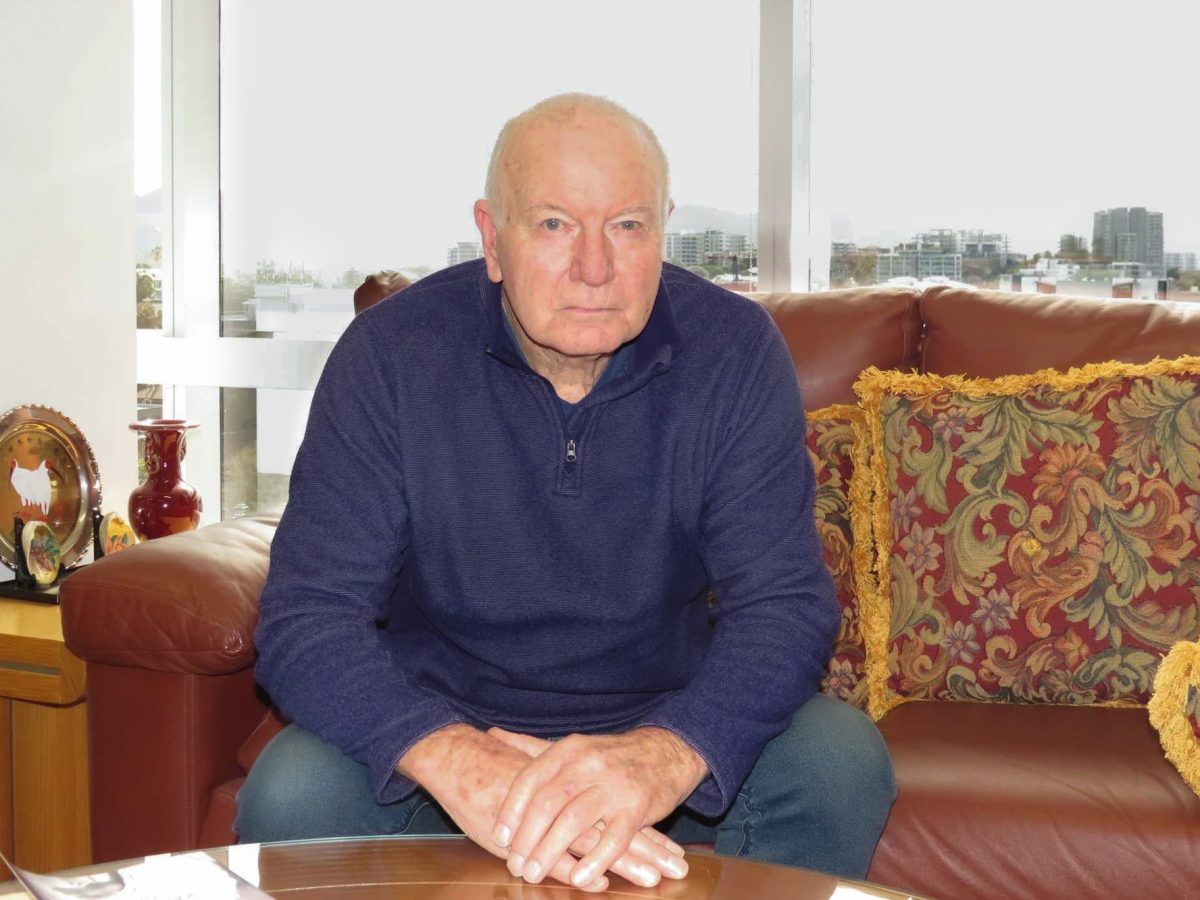
Gordon Bradbery has left an indelible mark on Wollongong and continued the city’s proud history of social activism. Photo: Zoe Cartwright.
Sometimes loved, sometimes lambasted, always outspoken, Lord Mayor of Wollongong City Council Gordon Bradbery has called time on his political career.
Gordon was elected mayor when Wollongong City Council came out of administration in 2011 and was instrumental in restoring the community’s trust, such as it is, in local government.
A minister of the Uniting Church successfully turning his hand to politics was unusual enough, but when Gordon first finished school he had no intention of either career path.
He was a scientist.
“I left school at 16 and lived on my own in a bedsit in Dulwich Hill while I worked for a drug research company,” he said.
“I wanted to be a laboratory technician and trained in the Streets Ice Cream laboratory until I was 18 or 19. I loved science and planned to go through the TAFE certificates on to a diploma, then a degree.”
It wasn’t to be. Gordon began to do youth work through the church in Sydney, first at Wesley Central then the Parramatta Methodist Church, then Camden.
He felt he ought to be qualified, but there were no courses for youth workers then.
He did find an undergraduate psychology and sociology degree on offer at the University of Wollongong and for six years until he graduated in 1982, Gordon would drive his motorbike from Camden to campus.
“There was a brilliant school of sociology in the university at the time led by Professor Stephen Hill, and that started me on the path of getting my head around social interactions, politics and so on,” Gordon said.
“It’s probably there a lot of my political activism started. One of the most liberating books I ever read was one of my sociology texts, The Social Construction of Reality by Berger and Luckmann.”
He went on to do a postgraduate degree in divinity at Sydney University before he became ordained as a minister.
His approach to the ministry was more academic than dogmatic and was inspired by his upbringing at Dr Barnardo’s children’s home in Normanhurst.
“There is so much negativity around children’s homes, but it was a refuge for me,” he said.
“I experienced security, love, support and compassion.
“The rule was you had to go to Sunday school. The Anglicans were too far to walk, so I went to the Methodists on the corner and I admired the people who tried to teach me at Sunday school, not necessarily what they said but what they did.
“We were buggers of kids but these people took their task seriously and we had a good time at Sunday school and I suppose that was my introduction to social justice and social inclusion.”
Gordon started out in the ministry at Jannali Uniting Church, before going on to Miranda Uniting Church and then to Wollongong.
In 2011, shortly after his 60th birthday, the Uniting Church wanted him to take on another parish, but he didn’t want to leave the city.
He decided to step down as minister and step up to the state election the same year.
He lost to Labor candidate Noreen Hay by 674 votes.
The Liberal Party took government and allowed Wollongong City Council to come out of administration, so Gordon promptly ran for Lord Mayor.
He got it, and has continued to be voted in ever since, although there were some notable differences between his role as leader of a congregation and his role as leader of the city.
“In the church they expected an occasional miracle but in this gig they expect miracles every day,” he said.
“Crucifixions are quite regular in the political scene – everyone wants a bit of you.
“I had to get my head around tighter meeting procedures, detailed policies and governance and went from a budget of about $300,000 a year to a turnover of about $360 million a year.
“I always approached it like I was the chair of the board and we had the responsibility of managing the assets of the city.”
Although he didn’t support politicking in the council chambers, Gordon was more outspoken when it came to social justice issues.
He spoke out early against Russia’s invasion of Ukraine, has been unequivocal in his stance on Gaza and garnered widespread outrage over his refusal to hand UFC champion Alxander Volkanovski keys to the city.
Gordon said for him all three issues came back to values about humanity.
“Occasionally I have been asked to comment and I cannot resile from my own ethics, my own basic morality,” he said.
“Most of those issues are around violence and the destruction of human beings, and I don’t care what your label is I will always defend your humanity.
“I copped a lot on the keys to the city issue. Alexander Volkanovski is a nice person, but I cannot endorse violence.
“Statistics tell us after such events we have an increase in violence in our community, specifically domestic violence, and when I look at the big picture we have a society where domestic violence is out of control.
“It’s totally ugly, destructive behaviour towards women and that fans out in its implications for children that witness this.
“I was raised in circumstances where there was a great deal of domestic violence and it led to the breakdown of my family. Both my parents were alcoholics and drank themselves into oblivion.
“That’s why I ended up in the home, and somehow or other we need to break that cycle.”
Despite his strong, and sometimes controversial stances, the community kept voting Gordon back in.
He believes it’s because of Wollongong’s proud history of social justice.
“This city has a reputation for standing up against war, from the Dalfram incident in 1938,” he said.
“It’s part of the story of Wollongong and something this city can be very proud of.
“Even today it was one of the only cities that voted in favour of The Voice Referendum. It’s got a social justice component and I suppose I’ve reflected that in my tenure as mayor.”
Now that tenure has ended, Gordon said he’s most excited to wake up each day with a fresh slate, instead of living out of a diary.
He plans to spend his new-found free time enjoying his grandchildren, wrangling the encroaching jungle at his Berkeley home, reading, watching movies and travelling.
It sounds idyllic – but it’s unlikely to last long.
“Give me 24 hours and I’ll need a project,” he said.
“I’ll enjoy cruising along a bit more instead of having to rush here or there and then have the time to consider what’s next.”








